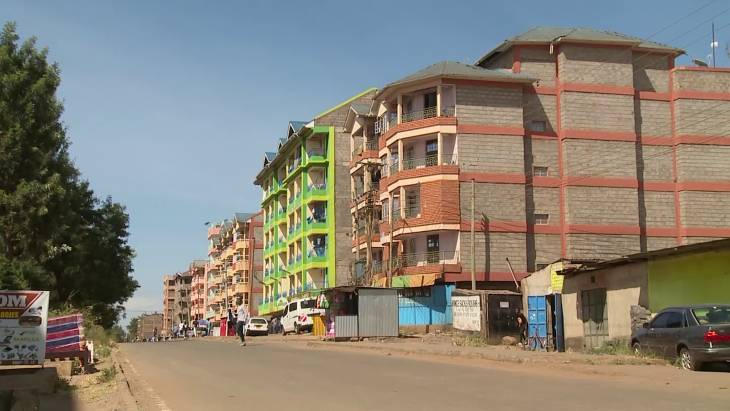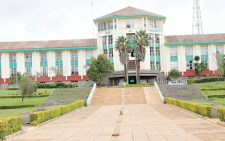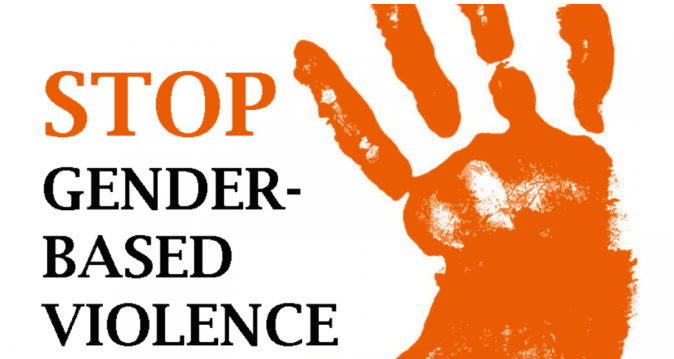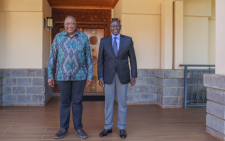School offers refuge to needy children
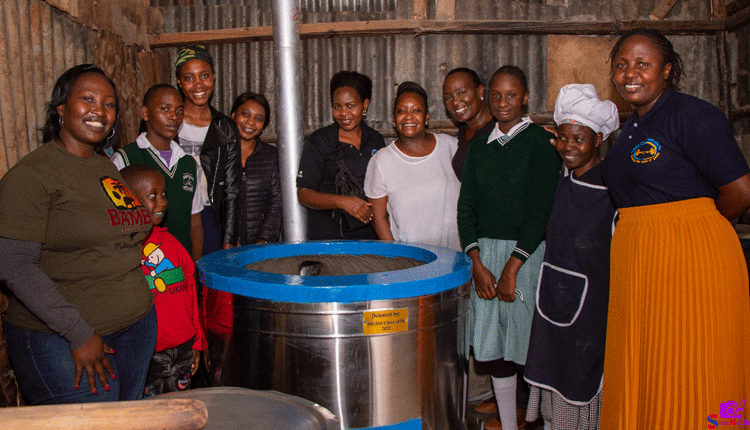
For the longest time, Beyond the Vision Initiative School has been cooking using the jiko.
This meant that they would use charcoal from 6.30am to midday, an expensive venture that also saw students receive meals in small portions.
Recently, the school received a kitchen upgrade from the alumni of Moi Girls School, Isinya, specifically the class of 1996, to ensure the children have their meals on time.
“Since 2018, I wanted to get the firewood jiko with a bigger capacity, one that cooks faster while consuming less fuel.
Having the class of 1996 donate the same to us ensures the children not only eat on time, but also get decent portions and that we save on fuel,” explains Jacqueline Musyoka, founder of Beyond the Vision Initiative.
Eight years ago, when she used to live in Donholm, Jacqueline received a message about the children and the conditions they lived under in their homes.
She wanted to set up a place where children are mentored and their lives positively influenced.
“My friend convinced me to start a school as he had seen my interactions with the children I was teaching in Sunday School.
These children inspired me to start a school and change the lives of at least 50 others. I kept thinking about it until I opted to go for it,” she recalls.
Jacqueline remembers going round the slum inviting children to come to the school.
Some were fending for themselves by picking metals, wires and plastics around the slum.
The students come from very poor backgrounds and the slum is a huge challenge, especially to teens and youth due to peer pressure.
For instance, gangs recruit children as young as eight years old and drugs are readily available and affordable.
“With just Sh5, a teen or youth can get high. With no proper role models, such vices are attractive to the youth.
Some experience sexual abuse at home and most cannot afford fees to go to proper schools.
That’s why a school like ours is attractive to many. I would promise them food and use the same to ensure they stay in school.
We have seen children also self-admit after they hear about us from their friends. We also have parents who bring their children for admission,” she adds.
Eighteen-year-old Linzy Livian, an alumna of the school currently at Mount Kenya University, joined the school in 2012 at Grade Five and recalls how it was a refuge from her abusive father.
“My father had threatened not to pay my fees if he didn’t sexually abuse me. He also threatened that if I told anyone about what he was doing, he would not pay my fees.
The school offered lunch, which kept me reading and active, and our teachers mentored us.
I was always the top student while at Beyond so I took advantage of that to request madam Jackie for a scholarship and I promised to do my best,” says Linzy.
She passed her exams and got a scholarship to study at Othaya High School in 2015.
It is such successes that keeps Jacqueline going. She began with 40 students in a space they couldn’t fill as students were fewer than the classes available.
However, rent became an issue and they had to move. Jacqueline recalls how she was chased from two venues due to rent arrears; she also couldn’t afford to pay the teachers.
Leadership roles
Fortunately, Jacqueline was able to get a property in Tassia where the school is currently based.
She refurbished the dilapidated property early this year with the help of well-wishers.
Though they have been leasing it for the past five years, Jacqueline hopes she will soon buy the property and set up better infrastructure and a learning environment.
So far, 20 students have been sponsored for their secondary education and are performing well.
They are also mentored, especially from upper primary and those under the scholarship programme.
“Most of our students get leadership positions in their respective high schools or schools of higher learning and are peer counsellors.
When asked how they get to be so disciplined and ‘full of wisdom ‘ they credit the mentorship programme,” she continues.
She adds that they also have an etiquette programme, where they train older children on ‘acceptable’ behaviour so they can fit in any social setting.
“In the slum, the child’s biggest challenge is that they’re easily identified when outside the slum because of their behaviour, lack of etiquette or even simple things like proper hygiene.
This programme ensures our children are ready to face the world and be successful while at it,” she explains.
Mental health space
They have the Hakeem’s space, a mental health programme targeting both youth and their parents.
It covers issues within the families and outside, and creates a safe space where the children are free to express themselves, question issues, and share openly without judgment.
“We provide psychosocial support through the help of experts where we lack capacity. Hakeem’s Space also reaches out to parents through monthly parents’ forums.
We have realised this programme has improved the relationship between teens, youths and their parents, and with us as they are more open,” says Jacqueline.
One of the greatest challenges they face is land ownership. While they would love to own their own property where they can run their own programmes, it is difficult to own property in the slum, which also lacks proper drainage and sanitation.
“Lack of ownership means we can’t plan on available space to properly utilise it to ensure children have space for games and recreation.
We are happy with the support from our well-wishers both locally and internationally, which enables us to assist the children access education and build a better future for themselves,” she adds.
In future, Jacqueline hopes to establish an adult learning and skills centre that will offer parents and the community skillset options.
She intends to establish a tailoring school and workshop that will specialise in making and distribution of uniforms.
“This will offer employment and necessary skills to the community. We hope to own property where we can put up a proper school, with a library and computer lab – the CBC curriculum is challenging to our learners because of lack of access to technology and we hope that will solve the problem.
We plan to establish a boarding school outside Nairobi for older children and also have a retreat centre for teens and youth who need a break under Hakeem space,” she says.
